Last September I visited Philadelphia for the first time. I’m not as deep into the history of the Revolutionary War as I am the Civil War, but one of my goals now that I’m living in the Northeast is to learn more about the earlier conflict. Philadelphia seemed like a great place to dig into this history, and so on my trip, I visited the Museum of the American Revolution, I took a historic walking tour of the Old City, and me being me, I stopped by Christ Church Burial Ground to see Benjamin Franklin’s grave. (“A penny saved is a penny earned” is apparently misattributed to him but you wouldn’t know that from his final resting place.)
I expected to see a lot of George Washington and Benjamin Franklin in Philadelphia, and I did.
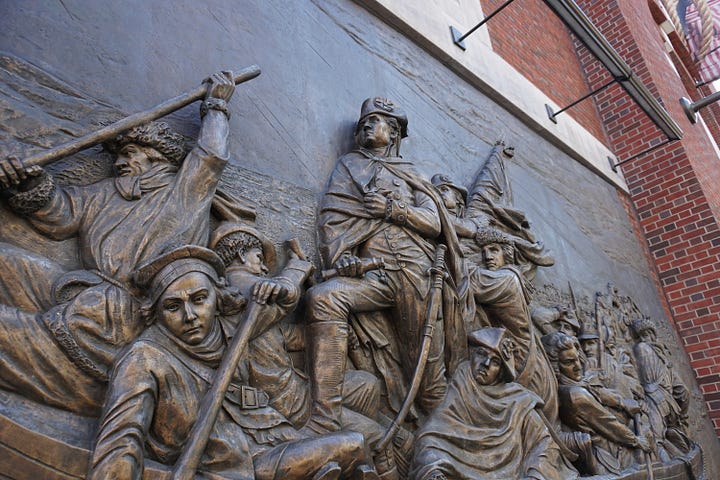
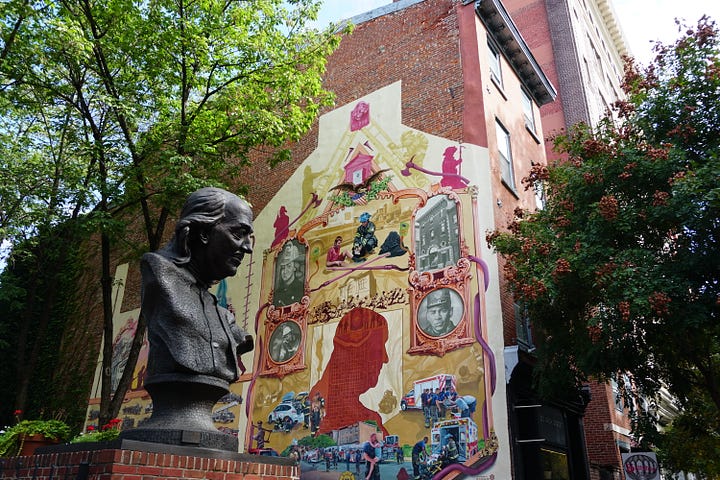
What I didn’t expect to see, and what took me by surprise when I walked by it, was The Irish Memorial,
This monument pays tribute to the Irish who suffered during the Great Famine, An Gorta Mór, which occurred between 1845 and 1850 in Ireland. It’s estimated that over one million Irish people died as a result of the famine and at least another million fled the country. Many of these Irish immigrants ended up in the United States where they faced discrimination and poor living conditions in cities like Philadelphia. The memorial recognizes how despite these circumstances they helped shape America into the nation it is today.
Growing up, I knew that I had Irish ancestors, but it wasn’t until a couple of years ago when I traced my genealogy that I discovered one of my ancestors seems to have arrived in the US during the famine period. I’d always assumed that my family arrived after the US Civil War because I’d never heard anything about my ancestors serving. It turns out, I might be a descendent of a Union soldier too, although I’m not 100% on that. Both the ancestor who I believe might have immigrated during the famine and the ancestor who might have served have common names.
Seeing The Irish Monument in Philadelphia gave me a new appreciation for the horrors that my ancestor might have left behind in Ireland and for how her altered trajectory shaped the course of my life as well. It’s weird to think about, but I would not be who I am today if not for the Irish Potato Famine.
Do you have any historical events you feel similarly tied to because of your ancestry?
And now, a word from Cicero
Today’s topic reminded me of a grave I spotted at Oakland Cemetery a couple of years ago (the same evening I found the grave with the phrase “the silent sod” on it). The quote on this grave has been attributed to Cicero, the Roman scholar:


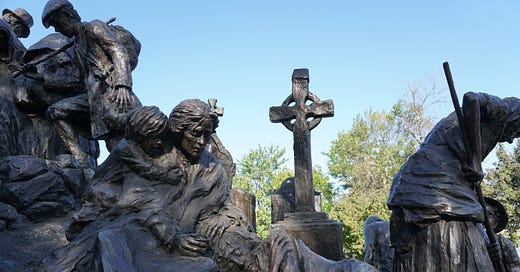


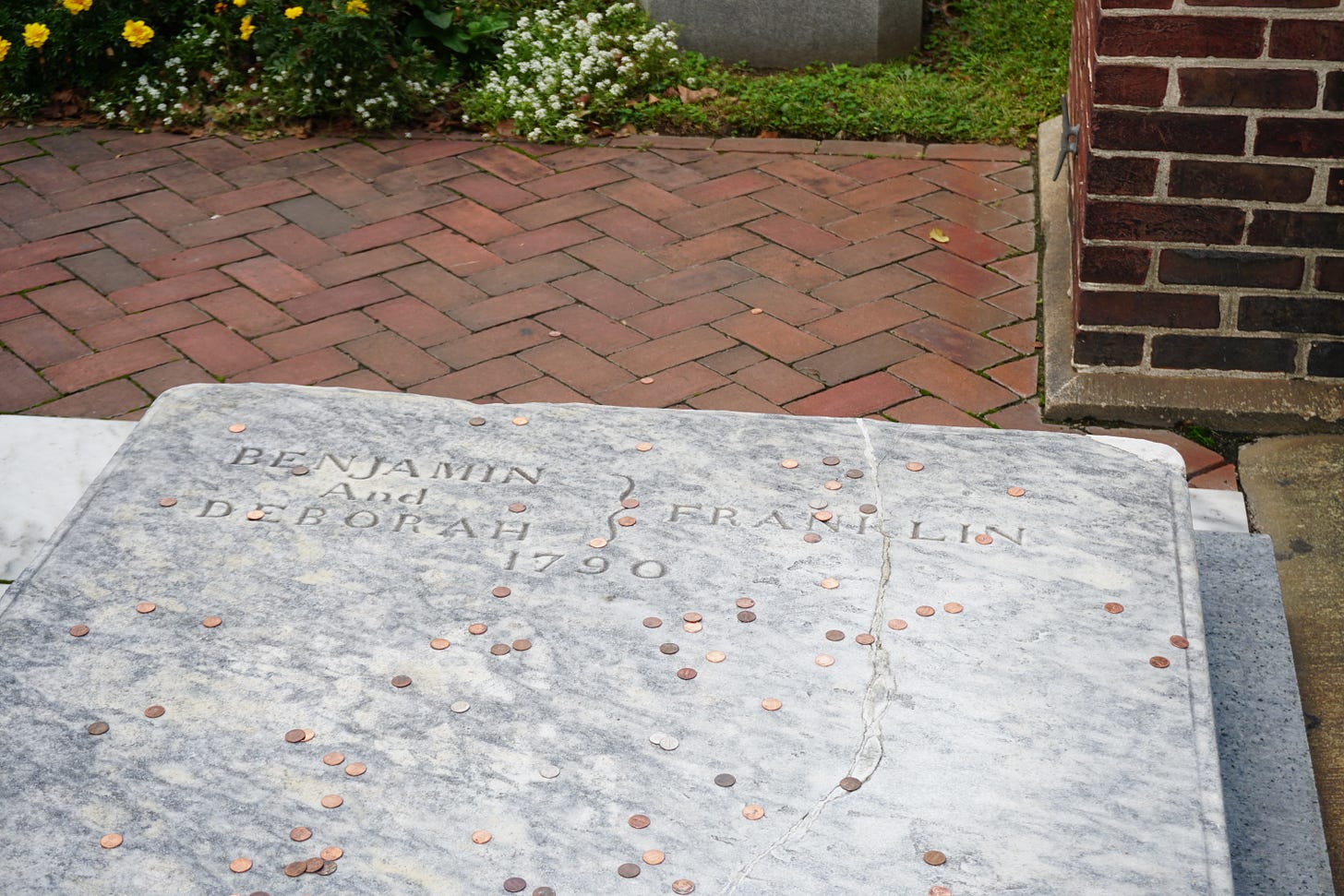
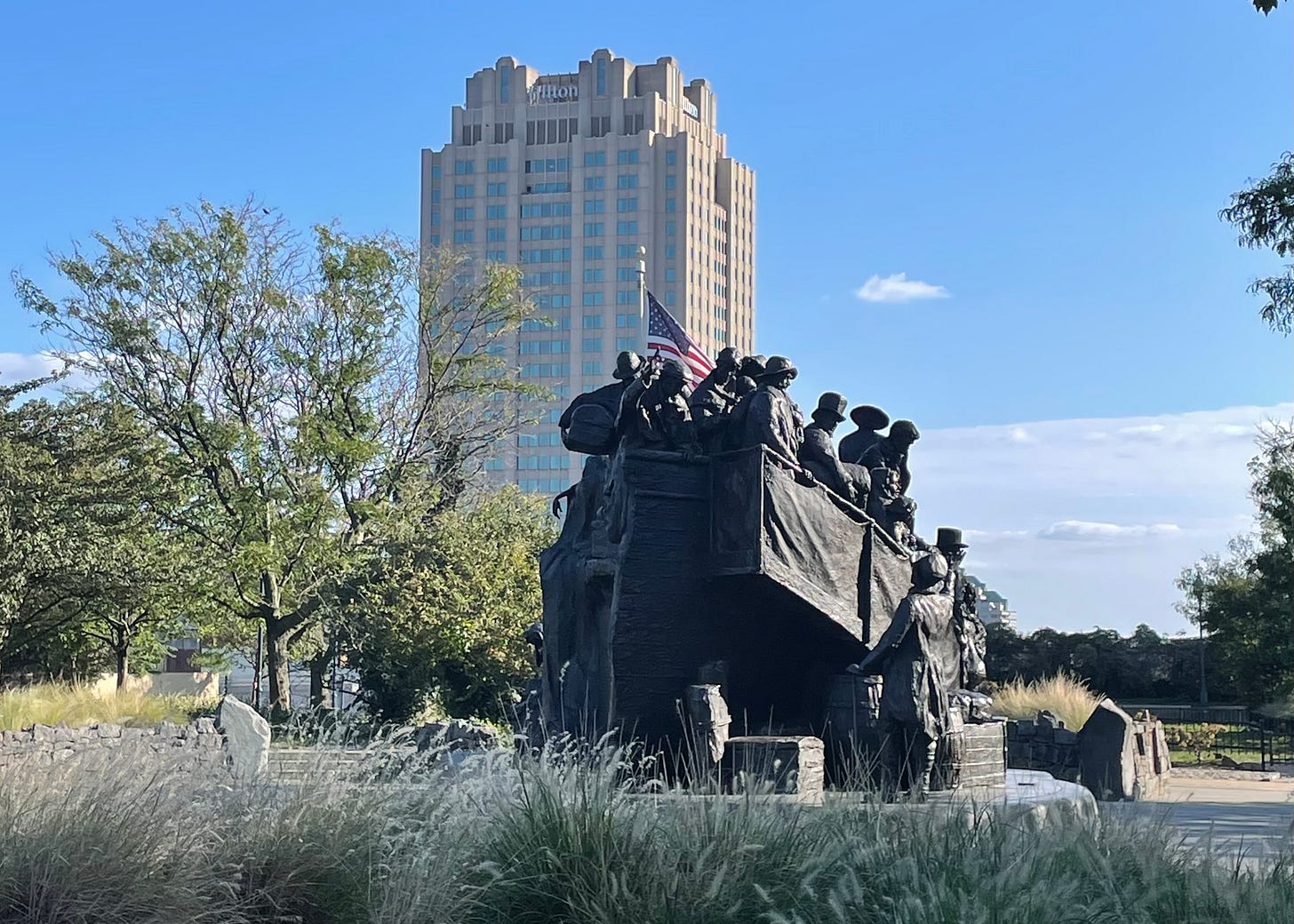


Wow, I did not know this. Great post and pictures!